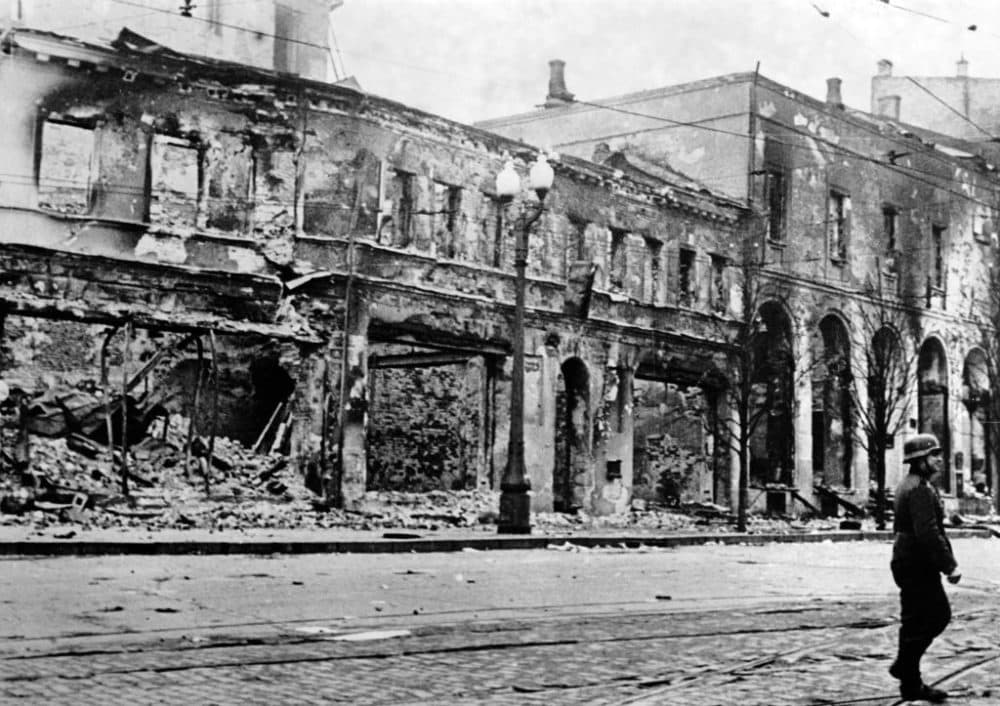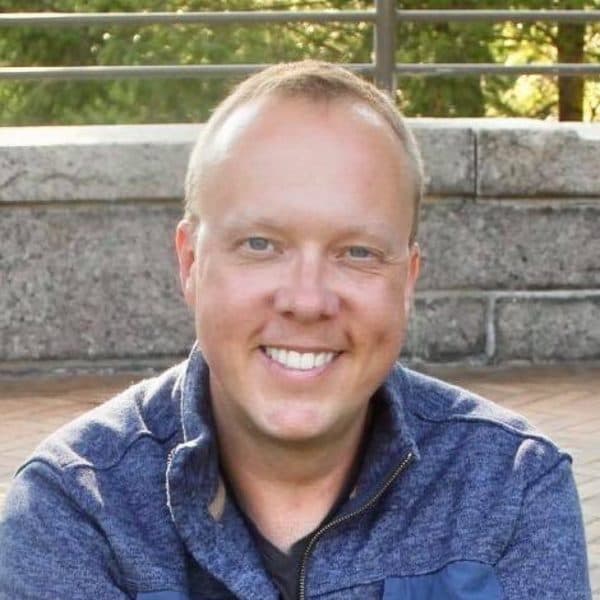Advertisement
Commentary
500,000 Ukrainians have fled so far. What does it mean to lose your home, your life?

Eighty-one years ago my father was displaced from Belarus by war. As Russia began its violent invasion of Ukraine last week, and border towns filled with refugees, I worried about the children who might be hurt by conflict and displacement, just as my father was.
My dad was at summer camp when the Nazis invaded Belarus in 1941, at the start of the Nazi invasion of the Soviet Union (known as Operation Barbarossa). His first clue that something was amiss was a Luftwaffe plane descending on him and opening fire, as he played tag in a field with other kids his age. These 10-year-old children and their counselors retreated back home, to Belarus’s capital, Minsk, on foot. It took them two weeks to cover about 60 miles.
Once there, my father found that he was alone, his family gone, their apartment leveled. (We discovered much later, in 2006 — after my father died — that his mother had been killed by the Nazis for her affiliation with the Communist Party). That was his first displacement.
***
Less than 48 hours after Russia invaded Ukraine last week, more than 100,000 Ukrainians had fled to other countries. That number reached half a million by Monday afternoon, and could grow to be as many as 3 million to 5 million people according to Samantha Power, the administrator of USAID.
I watched footage of Ukrainian children, bundled in winter coats and carrying armfuls of their possessions, stopped at border crossings waiting to flee into Romania, Poland or Hungary. I couldn’t help but think of my father, a boy when his war began. I thought of the more than 6 million children in the Ukraine whose lives will be forever marked by this conflict.

A year after the German invasion of Belarus, my father had become an expert beggar and thief, groveling for scraps at the crumbling doorsteps of his neighbors or swiping bread from the plates of Germans soldiers who’d turned their heads. Usually the Russians shooed him away, but more than once a Nazi’s boot made contact with his rear.
Eventually, the Nazis employed my father as a courier, taking advantage of his Belarusian language skills and his growing understanding of German. The Germans assigned him a Russian-speaking truck driver, and my father would go around to the various businesses, banks or merchants in Minsk, and collect supply deliveries for the Nazis, including shipments of Schnapps from back home. In some respects, the role offered my dad protection — a place to stay, and food. But it didn’t preclude him from suffering the regime’s brutality. When he stole mints from his boss, the man caught my father and whipped him until his flesh broke and blood seeped through his shirt. My father was 12 at the time. He bit back his tears and showed no emotion.
He ought to have been playing chess with friends, reading books at night with his mother.
When the Germans retreated from Russia, my father went with them. By truck and train, he eventually found himself displaced again, nearly 900 miles away from the city of his birth, this time in Hamburg, Germany. He was there working in a BMW plant when the war ended. By 1949, at just 18-years-old, he was living in a UN displaced persons camp, before he immigrated to the United States. This last displacement left him 3,500 miles from home.
I didn’t know then, as a terrified child, what I understand now, about the connections between his violence and his upbringing
In 2020, UNICEF estimated that 20.4 million children were displaced within their own country by violence and conflict. Also according to UNICEF, kids make up one-third of the world’s population, but almost half of the globe’s refugees. In addition to the physical consequences of displacement on children, they have an increased likelihood for PTSD, depression, anxiety, and behavioral issues that they’ll carry into adulthood.
***
On many a whiskey-fueled night, my father took his trauma out on his children, using his fists to let out the rage. I didn’t know then, as a terrified child, what I understand now, about the connections between his violence and his upbringing. But as his scars became my own and those of my 10 siblings, I wondered what a life in which my father had avoided displacement and its associated wounds might have looked for all of us.
My father was not always filled with rage. He could be sweet, too. He’d slice oranges with me on Saturday mornings before soccer practice, loading them into a plastic bag that he’d hold on his lap on the sidelines before my teammates and I devoured them during breaks. Would there have been more sweetness, more bags of oranges, sticky sunshine, had eight of his childhood years not been defined by war and displacement?
Linda Thomas-Greenfield, the U.S. ambassador to the U.N., warned this week that the invasion could result in millions of refugees, legions of them children. "Unimaginable suffering,” she said. “Millions of displaced people will create a refugee crisis across Europe."
I imagine their losses, their pain. I know first-hand how it might reverberate in their future children’s lives, as my father’s did. I know even one displaced child is too many.
